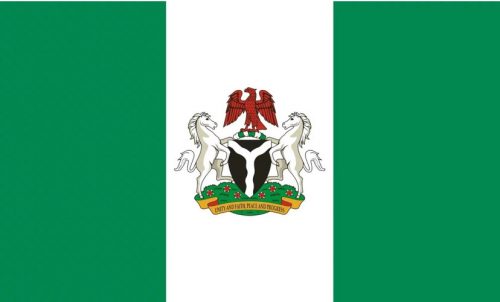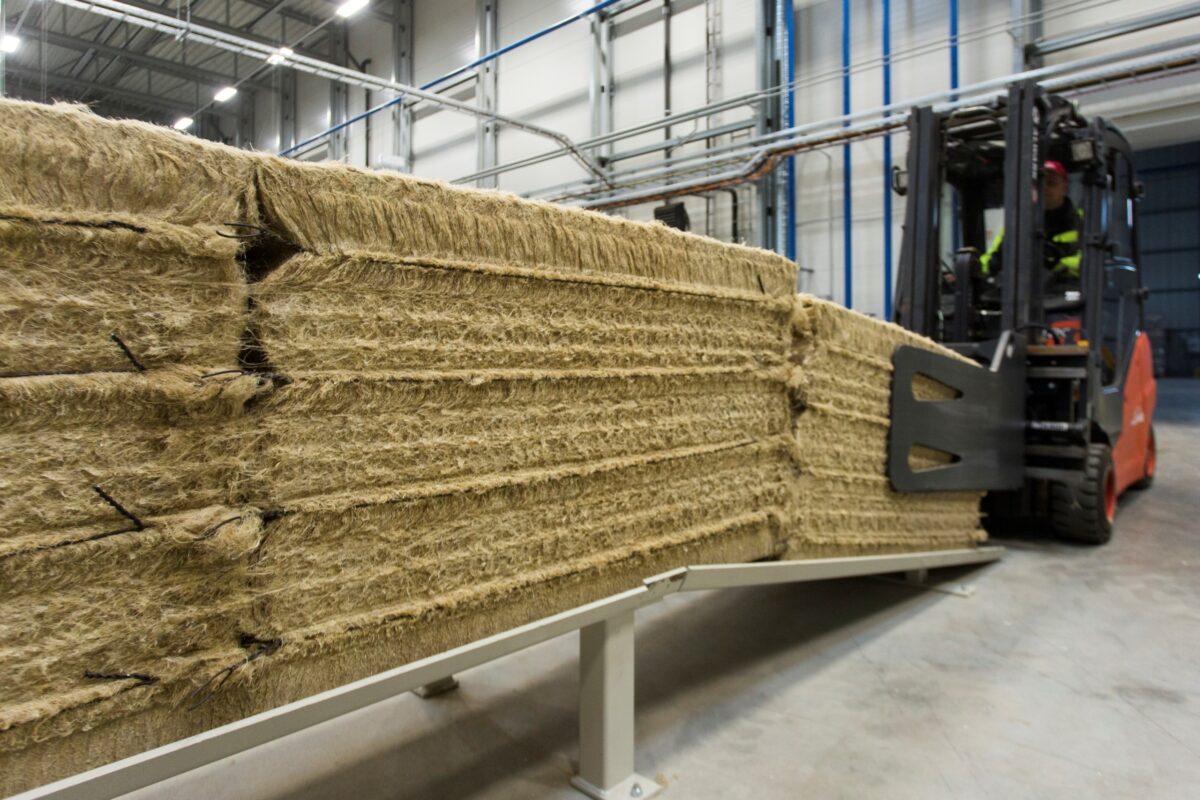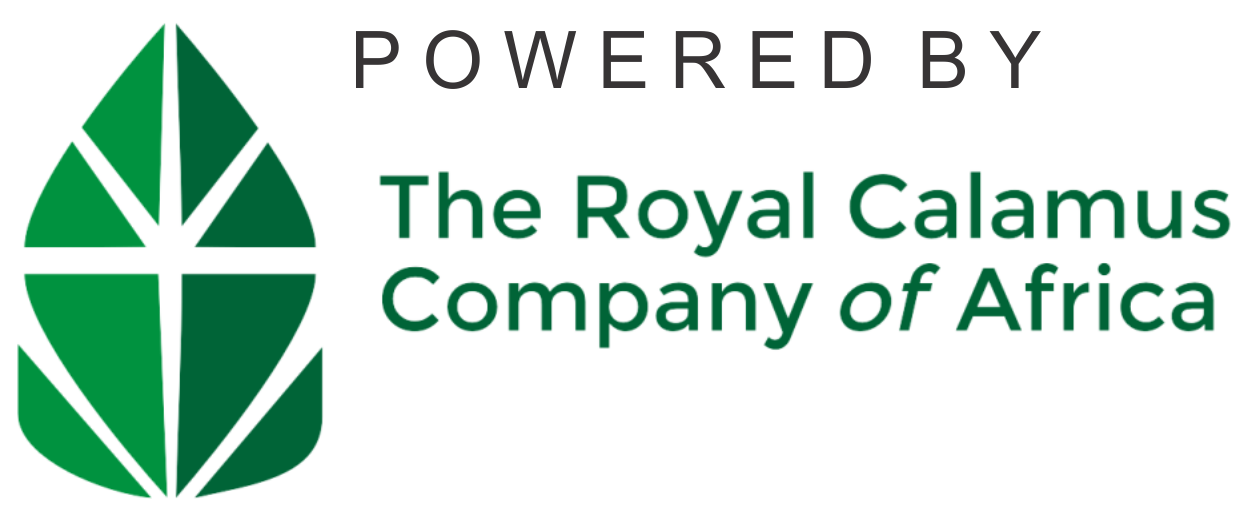
As the world shifts towards a more sustainable and climate-resilient future,Nigeria has a unique opportunity to leverage the potential of industrial hemp to drive economic growth,promote enviromental sustainability,and support social development.
According to a report by the Food and Agriculture Organization (FAO) of the United Nations, the global industrial hemp market is projected to reach $15.6 billion this year, growing at a CAGR of 14.3% from 2020 to 2025.”The potential of industrial hemp in Nigeria is enormous,” said Dr. Ikechi Agbugba, a researcher at the Nigerian Institute for Oil Palm Research.
“With the right policies and investments, Nigeria can become a major player in the global industrial hemp market.”

The key players in the industrial hemp value chain are Israel, the US, Canada, China, and the EU. China is the dominant global supplier of industrial hemp, producing roughly 70 percent of global output yet it has the strictest drug laws. The Chinese government is allegedly dedicating 3 million hectares of land to growing industrial hemp for sustainable industrial and innovative uses.
According to the value chain analysis done by Links-Nigeria,more than 30 countries and at least 47 US States have enacted legislation to establish industrial hemp production programs or allow for hemp cultivation. At least ten African countries have enacted or are enacting a legal framework for industrial hemp.In all these locations, industrial hemp cultivation is subject to a minimum level of THC content, which allows industrial hemp to be differentiated from its narcotic cousin, marijuana.
Latest year,the newly elected president of Botswana announced that they would be adopting industrial hemp for manufacture and innovation in order to diversify their economy and reduce their dependency on diamonds inspite of the fact that Botswana is mostly desert land.Perhaps they are looking to leverage industrial hemp’s ability to restore the soil because it grows deep roots that bind the soil together and help reduce desertification.
Policymakers in Malawi and Zimbabwe who are major tobacco exporters, hope that industrial hemp can replace their top cash crop, given tobacco’s destructive environmental footprint and limited end uses.In this climate economy,farmers can earn carbon credits from growing industrial hemp as it has the ability to sequester carbon and in Zimbabwe they have already launched industrial hemp carbon farming projects with pilot initiatives already underway as part of their proactive climate action strategy.Kenya is moving towards adopting industrial hemp as well,recently they hosted the first industrial hemp conference in East Africa and they are looking to position themselves as vital players in this space in the region.
The Difference between Indian Hemp and Industrial Hemp
It is essential to distinguish between Indian hemp, also known as marijuana, and industrial hemp.
Indian hemp is a variety of the Cannabis sativa plant that contains high levels of tetrahydrocannabinol (THC), the psychoactive compound responsible for its recreational and medicinal effects.

Industrial hemp, on the other hand, is a non-psychoactive variety of the same plant, containing less than 0.3% THC.It is an authoritative raw material that is carbon negative and has multiple use cases that cut across all sectors of industry.
Uses of Industrial Hemp
Industrial hemp has numerous end uses, including:
1. Textiles: Industrial Hemp fibers can be used to produce clothing, upholstery, and other textile products.
2. Paper products: Hemp pulp can be used to produce paper, cardboard, and other cellulose-based products.
3. Construction materials:Industrial Hemp fibers and stalks can be used to produce building materials, such as bricks, insulation, roofing, and wallboard.
4. Food and nutrition: Industrial Hemp seeds are a rich source of protein, essential fatty acids, and other nutrients.
5. Biofuels:Industrial Hemp seeds can be used to produce biodiesel.
6. Carbon sequestration: Industrial hemp is a highly efficient carbon sink, making it an attractive crop for carbon offsetting.
7. Biocomposites:Industrial Hemp fibers can be combined with bioplastics to create durable, lightweight, and sustainable materials for automotive, construction, and packaging industries. Hemp-based biocomposites offer a renewable, carbon-neutral alternative to traditional materials, reducing reliance on fossil fuels.
Potential Addressable Market in Nigeria
Industrial hemp ensures crop security under climate change and brings enormous economic benefits without negatively affecting the people and their environment as it is not a drug.
Nigeria, with its vast agricultural land and favorable climate, has the potential to become a significant player in the global industrial hemp market. According to a report by the Nigerian Investment Promotion Commission (NIPC), the country has over 84 million hectares of arable land, of which only about 40% is currently under cultivation.
Cotton for instance is Nigeria’s most important fibre crop and the country’s most extensive crop-volume of output produced.Two decades ago it accounted for 25% of Nigeria’s Gdp yet seed oil and seed cake were its only bi products.Currently cotton makes up for 0.4 % of Nigeria’s gdp.Cotton is also known for degrading the land which is leading to desertification especially in North Nigeria.
Using industrial hemp as an alternative to cotton will help boost the economy as industrial hemp is a more versatile fiber crop that has a myriad of bi products compared to cotton,it is more economical to grow ,it adds nutrients to the soil and is a great carbon sink.As a sustainable crop,industrial hemp has been gaining attention for its potential to drive economic growth,promote environmental sustainability and support social development.
Nigeria has the opportunity and capacity to leverage the momentum with which it is being adopted globally and the insights from industrial hemp legislations that have taken place in the region and world to leapfrog into becoming a global authority of sustainability, innovation and creativity if we adopt this carbon negative bioresource to meet our climate goals.
Impact on Local and Global Industry and Trade

The adoption of industrial hemp in Nigeria could have a significant impact on various industries, including:
1. Textiles: Hemp fibers could replace traditional cotton fibers, providing a more sustainable and durable alternative.
2. Construction: Hemp-based building materials could provide a sustainable and eco-friendly alternative to traditional materials.
3. Food and nutrition: Hemp seeds could provide a rich source of protein and essential fatty acids, supporting the country’s food security goals.
4. Biofuels: Hemp-based biofuels could reduce the country’s reliance on fossil fuels, supporting its climate change mitigation goals.
Effect on trade and development
Trade
1.Export opportunities:Nigeria can become a significant player in the global industrial hemp market, creating export opportunities for the country from industrial hemp innovations leveraging its vast natural resources that can be used in conjuction with industrial hemp to make uniquely Nigerian products of global demand.
10 of Nigeria’s top export products with potential for replacement or supplementation by industrial hemp, along with approximate export value are:
-Crude Petroleum: Value: $52 billion (dominant export) Industrial Hemp Potential: Industrial Hemp can produce biofuels (biodiesel, bioethanol) as an alternative energy source, reducing reliance on crude oil.
-Petroleum Gas: Value: $6.84 billion Industrial Hemp Potential:Industrial Hemp can be used to produce bio-LPG (liquefied petroleum gas), a renewable alternative to traditional LPG.
-Mineral or Chemical Fertilizers: Value: $1.06 billion. Industrial Hemp Potential: Industrial Hemp can be used to create organic fertilizers and soil amendments, potentially reducing the need for some chemical fertilizers. Hemp also improves soil health, reducing the need for some fertilizers over time.
-Cocoa Beans: Value: $669 million Industrial Hemp Potential: Industrial Hemp seeds can be used to produce a variety of food products, including protein-rich foods, potentially reducing reliance on some agricultural exports like cocoa.
-Other Oil Seeds and Oleaginous Fruits: Value: $465 million. Industrial Hemp Potential:Industrial Hemp seeds are rich in oil, which can be used for various purposes, including food, cosmetics, and industrial applications, potentially competing with some existing oil seed exports.
-Coconuts, Brazil Nuts, and Cashew Nuts: Value: $351 million Industrial Hemp Potential:Industrial Hemp seeds can be processed into various food products, potentially offering a new, high-protein, and versatile export option.
-Unwrought Aluminum: Value: $272 million Industrial Hemp Potential:Industrial Hemp fibers can be used to create strong, lightweight composites, potentially replacing some aluminum uses in certain industries.
-Soya Beans: Value: $268 million Industrial Hemp Potential:Industrial Hemp seeds are a rich source of protein, potentially competing with soybeans in certain food and feed applications.
-Refined Copper and Copper Alloys: Value: $189 million Industrial Hemp Potential: While not directly replacing copper,industrial hemp can be used in various industrial applications, potentially reducing the demand for certain metals.
-Electrical Energy: Value: $161 million Industrial Hemp Potential: Hemp can be used to produce biofuels for energy generation, potentially contributing to a more diversified energy export sector.
Sum Total Value: Approximately $72.7 billion
2. Import substitution: According to estimate figures based on available trade data,Industrial hemp can potentially substitute a significant portion of imported products.This can help to promote local industries and carbon negative domestic production which will aid in reducing Nigeria’s carbon footprint and reliance on imports.Here are the top products imported by Nigeria that can be substituted with industrial hemp, along with their corresponding import values in 2024:
- Textiles and Clothing: $1.43 billion (2024)
- Cosmetics and Personal Care Products: $743 million (2024)
- Food and Beverages: $644 million (2024)
- Pharmaceuticals: $584 million (2024)
- Animal Feed: $453 million (2024)
- Paper and Paperboard: $344 million (2024)
- Paints and Coatings: $278 million (2024)
- Soaps and Detergents: $234 million (2024)
- Fertilizers: $194 million (2024)
- Plastics: $174 million (2024)
Total import value for listed products $4.94 billion
3. Diversification of trade: Industrial hemp can help to diversify Nigeria’s trade, reducing the country’s dependence on traditional export commodities like oil.According to the United States’s National Hemp Association,Industrial hemp has an estimated global adressable market of 15 trillion dollars as it has the capacity to have a foothold in every sector of the economy.
Development
1. Job creation:Industrial hemp can provide employment opportunities for small-scale farmers, processors, and manufacturers.
2. Poverty reduction: By providing a new source of income for farmers and rural communities, industrial hemp can contribute to poverty reduction and improved livelihoods.
3. Infrastructure development: The development of industrial hemp can lead to investments in infrastructure, such as processing facilities, storage, and transportation networks.
4. Technology transfer: The adoption of industrial hemp can facilitate technology transfer, as Nigerian farmers and processors learn new skills and adopt new technologies.

Potential impact on regional trade
Nigeria’s potential earnings from leveraging the Africa Free Trade Continental Agreement (AfCFTA) and substituting its exports with industrial hemp are substantial. While there isn’t a specific figure available for industrial hemp, the AfCFTA is expected to increase Nigeria’s exports by 6.3% in agricultural products and 1.3% in food and beverage exports.
Assuming industrial hemp is categorized under agricultural products, Nigeria’s earnings from industrial hemp exports could increase significantly. Currently, Nigeria’s top export products include cotton, soybeans, and groundnuts, which could be substituted or complemented with industrial hemp.
To give you a better idea, here are some of Nigeria’s top export products and their corresponding values:-
Cotton: $143 million (2020 export value) Soybeans: $121 million (2020 export value) Groundnuts: $93 million (2020 export value)
If Nigeria can leverage the AfCFTA to increase its industrial hemp exports, even by a modest percentage, the potential earnings could be substantial. However, it’s essential to note that the success of this strategy depends on various factors, including Nigeria’s ability to develop its industrial hemp industry, compete with other African countries, and navigate the complexities of the AfCFTA.
Industrial hemp is a highly sustainable crop that can support various ESG (Environmental, Social, and Governance) goals, including:
1. Environmental sustainability: Industrial hemp is a low-impact crop that requires minimal water and pesticides.
2. Social responsibility: Industrial hemp can provide a source of income for small-scale farmers and support local economic development.
3. Governance: Industrial hemp can support transparent and accountable governance practices, ensuring that its cultivation and trade are conducted in a responsible and sustainable manner.
Drug Laws and Legislation

The adoption of industrial hemp in Nigeria is hindered by drug laws and legislation, which conflate industrial hemp with marijuana under the umbrella name of cannabis and there is a growing recognition of the need to bifurcate industrial hemp from marijuana at law. This would require amendments to existing legislation and the development of new regulations to govern the cultivation and trade of industrial hemp.
According to the EU funded,National drug survey conducted by the National Beraeu of Statistics (NBS) and The Centre of Research and Information on Substance Abuse (CRISA) as part of the United Nations Office on Drugs and Crime’s Response to Drugs and Related Organized crime in Nigeria project in 2018,an estimated figure of 10,6 million Nigerians with an average age of 19 were said to be involved in Cannabis use.
According to the NDLEA “this poses a serious threat to the mental health and security of Nigeria”.They rightfully enforce laws against cannabis abuse by considering the perculiar cimcumstances and complexities of Nigeria and they advice that this should be taken into consideration at all times before rolling out policies and legislations on Cannabis.They believe Cannabis legalisation may work for some countries but certainly not in Nigeria.
The NDLEA say they are “strenously battling to bring down the evil and illegalities of drug trafficking and abuse in society under control therefore Nigeria should not succumb to the seductive cruelty of the economic and therapeutic viability of cannabis and embark on actions/activities capable of snowbowling Nigeria into narcotic genocide.”

Nigeria’s laws and regulations regarding cannabis are primarily governed by the following:
The NDLEA Act, the UN 1961 Convention, and the 1971 Amendment to the Psychotropic Substances Act all prohibit the cultivation and trade of cannabis, including industrial hemp

- National Drug Law Enforcement Agency Act: Section 20 (1) (b) of the National Drug law Enforcement Agency Act,Cap N30,Laws of the Federation of Nigeria 2004 prohibits among others,unlawful cultivation, possession, and distribution of cannabis plants,while section 20b prescribes a penalty of life improsinment for any contravention of this provision.
- UN 1961 Convention: Nigeria is a signatory to this convention, which classifies cannabis as a narcotic drug.
- Convention on Psychotropic Substances 1971: This convention regulates the use of psychotropic substances, including cannabis.
- UN Convention against Illicit Traffic in Narcotic Drugs and Psychotropic Substances: Nigeria is also a signatory to this convention, which aims to prevent the illicit trade of narcotic drugs and psychotropic substances.
Despite these regulations, there are compelling arguments for legalizing industrial hemp in Nigeria and seperate it from the narcotic,indian hemp:
- Economic benefits: Industrial hemp has the potential to generate significant revenue for Nigeria, creating jobs and stimulating economic growth without threating people’s health and national security from its abuse as it is not a pyschotropic drug but an authoritative raw material for diverse industrial uses cutting across all sectors of the economy.
- Environmental benefits: Industrial hemp is a sustainable crop that requires minimal water and pesticides, making it an attractive bioresource and alternative to traditional crops.
- Medical benefits: Industrial hemp has been shown to have numerous medical benefits, including reducing inflammation and pain.
- Distinction from cannabis: Industrial hemp contains less than 0.3% THC, the psychoactive compound found in cannabis, making it a distinct and safe crop for cultivation.
To address concerns about the potential for industrial hemp to be diverted for illicit use, Nigeria could implement strict regulations and monitoring systems, such as:
- Licensing and permitting: Require farmers and processors to obtain licenses and permits to cultivate and process industrial hemp.
- Regular inspections: Conduct regular inspections of industrial hemp farms and processing facilities to ensure compliance with regulations.
- Testing and certification: Establish a system for testing and certifying industrial hemp products to ensure they meet quality and safety standards.
By legalizing industrial hemp and implementing strict regulations, Nigeria can tap into the economic, environmental, and medical benefits of this versatile crop while minimizing the risks.
Previous Attempts at Legislation
Previous attempts to legislate industrial hemp in Nigeria have been unsuccessful, primarily because they focused on the medical or recreational narrative which NDLEA has strict policies on as cannabis is deemed a psychotropic drug, overlooking industrial hemp ,a non narcotic that has industrial uses. They used the wrong lunguage (cannabis) and failed to seperate industrial hemp from the dangerous drug category indian hemp is in and these attempts failed to recognize the vast potential of industrial hemp as a sustainable ,carbon negative raw material with multiple uses across all sectors of the economy.
Conclusion
Industrial hemp has the potential to drive economic growth, promote environmental sustainability, and support social development in Nigeria. With the right policies and investments, Nigeria can become a major player in the global industrial hemp market therefore industrial hemp should be subject to a minimum level of THC content which allows it to be differentiated from marijuana.It should be regulated but legally pemmitted and with robust regulatory frameworks, access to financing, and the development of local processing and manufacturing capabilities,Nigeria can be well off to becoming a global powerhouse in the green economy.
Recommendations
To unlock the potential of industrial hemp in Nigeria, the following recommendations are made:
1. Develop a national industrial hemp policy: This policy should provide a framework for the cultivation, processing, and trade of industrial hemp in Nigeria.
2. Establish a regulatory framework: A regulatory framework should be established to govern the cultivation and processing
3.Trials for research should be allowed and encouraged inorder to aquire adequate and up to date data for decison making.
4.Leverage government support programs that facillitate cash crop diversification like the Anchor Borrower Programme(ABP),to introduce a shift into alternative crops like industrial hemp using existing outreach,extention service and input subisdisation programming.







